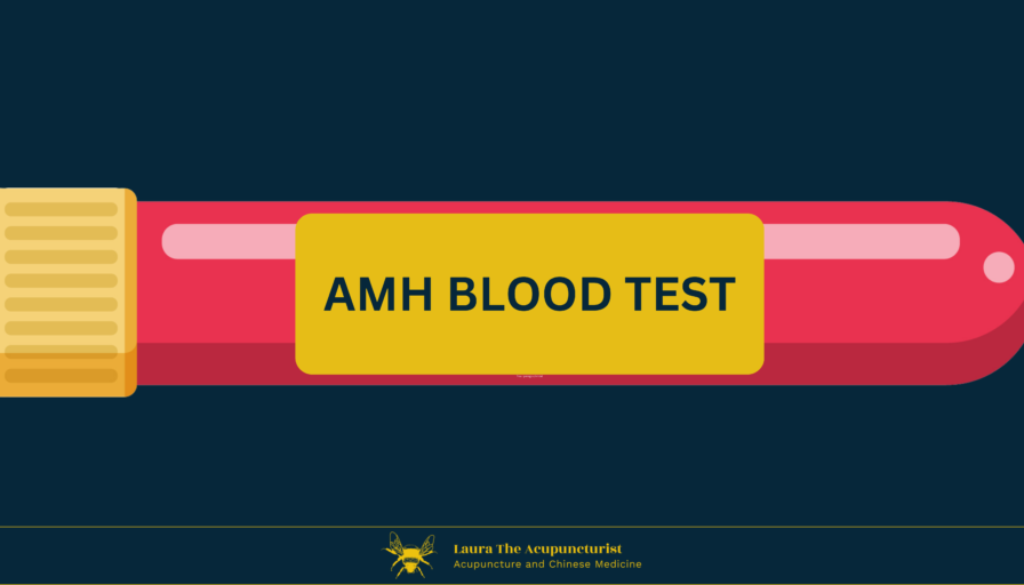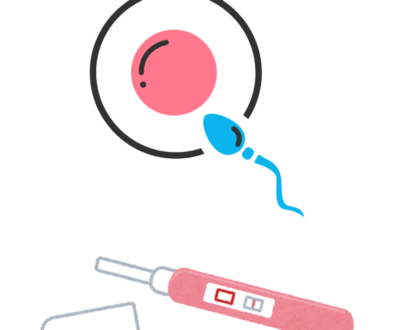AMH – How does it relate to your fertility journey?
Low AMH Levels? Here’s What You Can Do
A report of low AMH (Anti-Müllerian Hormone) is often a source of great anxiety for many people on their fertility journey. This test is commonly included as part of a ‘Fertility Assessment’, but it is poorly understood and often leads to unnecessary stress. If you’ve just discovered you have low AMH, let us take a step back and understand what this really means and what actions you can take.
First, let’s start with five key points to keep in mind:
-
AMH says very little about your natural fertility or your chance of conceiving naturally.
-
AMH is not an indicator of egg quality — egg quality is mostly influenced by age, rather than AMH levels.
-
AMH may help IVF clinics predict the number of follicles available for collection during treatment.
-
AMH can guide an IVF clinic in deciding the right stimulation protocol for you, which influences how your ovaries are stimulated.
- AMH levels differ between races, and this has no impact of differences in egg numbers, quality or conception rates.
I’ve Been Told I Have Low AMH, What Now?
If you’ve just found out that your AMH levels are low, don’t panic! Low AMH does not mean your journey towards starting or growing your family has come to an end. It’s simply a sign that we need to investigate your fertility more closely. Low AMH can indicate that there may be underlying issues affecting your ovarian environment or overall reproductive health, and addressing these issues can make a big difference.
There are several potential factors that may impact the health of your ovarian environment, including:
-
Vitamin D Deficiency: Low levels of vitamin D have been linked to reduced ovarian function.
-
Anaemia and Low Iron (Ferritin) Levels: Low iron can impact overall reproductive health and vitality.
-
Inflammation: Conditions such as IBS, IBD, Crohn’s, or arthritis can contribute to a suboptimal ovarian environment.
-
Microbial Imbalances: Infections or dysbiosis in your gut, vaginal, or uterine microbiome can cause inflammation that impacts fertility.
-
Poor Circulation: Issues like pelvic tension, surgical scars, adhesions, or postural problems can reduce blood flow to the reproductive organs.
-
Autoimmune Conditions: Conditions such as Hashimoto’s or lupus can negatively affect reproductive health.
-
Certain Medications: Some medications, including the contraceptive pill, can impact ovarian function.
-
Smoking and Poor Sleep: Both can have adverse effects on your ovarian health.
Steps You Can Take
1. Check Your Menstrual Hormones
Your hormone levels can provide a clearer picture of your reproductive health. It’s a good idea to test the following:
-
FSH, LH, and Oestrogen: These hormones should be tested on day two or three of your cycle to gain insight into ovarian function.
-
DHEA-S and Testosterone: Low levels of these hormones can impact ovarian output, potentially leading to lower AMH.
2. Properly Assess Your Thyroid Function
Many standard thyroid tests do not provide the full picture. It’s important to also test T3 and thyroid antibodies. Elevated thyroid antibodies can indicate autoimmune activity, which may increase the risk of premature ovarian insufficiency. This is particularly crucial if there is a family history of early menopause or autoimmune conditions.
3. Get an Ultrasound from a Specialist
An ultrasound with a specialist in women’s gynaecological health can help determine if your ovaries look healthy in terms of size, shape, and activity. An ultrasound can also rule out other fertility issues, like cysts or fibroids, that could be impacting ovarian health.
4. Investigate Male Fertility Thoroughly
If your AMH is low, it’s important to also look at your partner’s fertility. Many people with low AMH are still highly fertile, so ensuring there are no male factor issues is critical. A DNA fragmentation test can be useful as part of this assessment.
How Does Traditional Chinese Medicine View Low AMH?
In Traditional Chinese Medicine (TCM), low AMH is often related to Kidney Yin Deficiency. Yin represents the cooling, nourishing energy of the body, and is essential for optimal reproductive health. Kidney Yin deficiency can manifest in symptoms such as restlessness, frequent waking at night, hot palms and feet, or a cracked, red tongue.
In TCM, Kidney Yin is associated with oestrogen, FSH, and AMH levels. If Yin is deficient, AMH levels may be low, FSH may be high, and oestrogen could also be affected. This impacts the follicular phase of the menstrual cycle, as well as egg quality and the uterine lining. TCM treatment aims to replenish Kidney Yin, support overall hormone balance, and create a nurturing environment for follicle development.
How Can Acupuncture Help?
Acupuncture is a powerful tool in supporting ovarian health and optimising AMH levels. Clinical research [1] [2] is looking into how acupuncture may help improve AMH in individuals with premature ovarian insufficiency by supporting the body’s natural energy balance. Specific acupuncture points are used to:
-
Regulate Hormones: Acupuncture can help balance reproductive hormones and support ovulation.
-
Improve Circulation: By increasing blood flow to the ovaries and uterus, acupuncture can help create an optimal environment for follicle development.
-
Reduce Stress: Acupuncture is known for its calming effects, which can help reduce cortisol levels and alleviate stress—a significant factor that can negatively impact fertility.
Additional Lifestyle Tips for Supporting AMH
-
Focus on Rest and Relaxation: The Kidney naturally declines with age, which affects both fertility and Yin levels. Supporting the Kidneys requires prioritising rest, avoiding burnout, and incorporating relaxation practices such as meditation or yoga.
-
Eat a Nutrient-Rich Diet: Include cooling foods that support Yin, such as cucumber, chicken, and eggs, but also consult with a TCM practitioner to ensure these foods align with your overall health profile.
-
Consider Supplements: Speak to a nutritionist about supplements such as vitamin D, omega-3 fatty acids, and glutathione, which may help support reproductive health and ovarian function.
Conclusion
If you’ve recently found out that your AMH levels are low, remember that it is not a definitive marker of your fertility potential. There are many steps you can take to support your ovarian health, improve egg quality, and optimise your chances of conception. Whether through hormone testing, TCM treatments such as acupuncture, or making lifestyle adjustments, taking proactive steps can make a significant difference.




